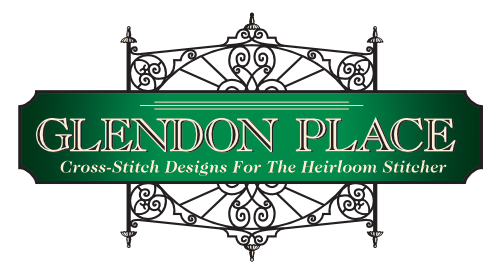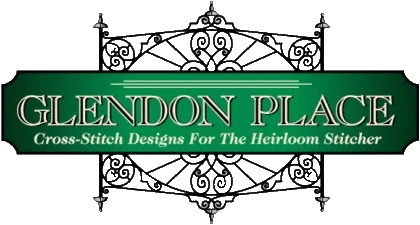Glendon Place Copyright Information
Stitchers! Help us stop copyright infringement in the needlework industry! This activity has become such a problem that many designers have been forced out of business and closed their doors. That hurts all of us and deprives us of (what would have otherwise been) a vast and varied selection of wonderful new designs to choose from each and every year.
The whole industry, from designers to publishers, to distributors and manufacturers of materials, and local independent needlework shops are negatively impacted. Ultimately, it affects you. The good news is you can actively do something about it and help protect the needlecraft you love so dearly. It all starts with education and truly understanding the “dos” and “don’ts” of what is legally, as well as morally acceptable with what a person does with a design once it is purchased.
Hopefully, these guidelines will help you help us keep our passion alive and breath new life into our industry. Thank you so much for taking the time to review this information and support the cause. The next time you hear “I would love a copy of that”, please share this information with that person, as well as fellow stitchers at stitch groups or during one-on-one conversations.
Read more about copyright infringement, tell us what you think, and join the fight at http://needleworkcopyright.blogspot.com/.
Hugs and stitches to you all!
Cheryl Granda
CopyRights
1
You can make a working copy of a chart/ leaflet/pattern in your possession. If the copyright disclosure on the chart doesn’t grant you permission, just check with the designer or publisher to be sure. They almost always say yes.
2
You can lend, trade, sell or donate any pattern that you own, once you have purchased it. But remember, you ONLY have the right to do that with the original physical copy that you paid for. See Article 202 of the U.S. Copyright Law for more details.
3
You can take a picture of your stitched piece and post it online to show off your beautiful work. You should also post the full name of the piece, the copyright symbol and the name of the copyright holder or publisher nearby to help protect that image online.
4
You can combine elements from published designs, change colors, fibers and even stitches when making items for your own enjoyment or as gifts.
5
You can donate the finished products (needlework, knitting, quilts, craft items (etc) to a worthy cause such as a bazaar or charity auction. You may even sell the finished piece as long as the item is not being massed produced for sale.
6
You can share a love of your hobby online by sharing links, information, tips & tricks, pictures of your finished products…just not illegally scanned designs. Please help protect the Hobby Industry by doing your part to uphold and respect copyrights. It is the law.
CopyWrongs
1
You cannot make a copy for yourself and loan the original to a friend. Wait until you are done and loan them the actual leaflet/chart/pattern.
2
You cannot scan a pattern, leaflet, chart or instructions from something published to create an electronic copy. This breaks Article 106 of the U.S. Copyright Law (Exclusive rights in copyrighted works) by creating a NEW copy which the copyright holder has not authorized.
3
You cannot share a scan electronically or post any pattern to the internet that you did not create yourself.
4
You can not change elements or colors in a published design or incorporate parts of other copyrighted works into a new work and publish it, sell it or distribute it as your own work. Under Article 106 of the U.S. Copyright Law, you must obtain permission from the original copyright holder before creating a derivative work.
5
You cannot mass produce any item from a single pattern for sale without the express permission of the copyright holder OR without negotiating a manufacturing or licensing agreement with the person who created the design/pattern/leaflet or its publisher.
6
You cannot be protected by claiming “fair use” or “for educational purposes” when reproducing copyrighted patterns without permission because of Article 107 (4) (the effect of the use upon the potential market for or value of the copyrighted work). Whether or not you make a profit from sharing the copy does not matter.


